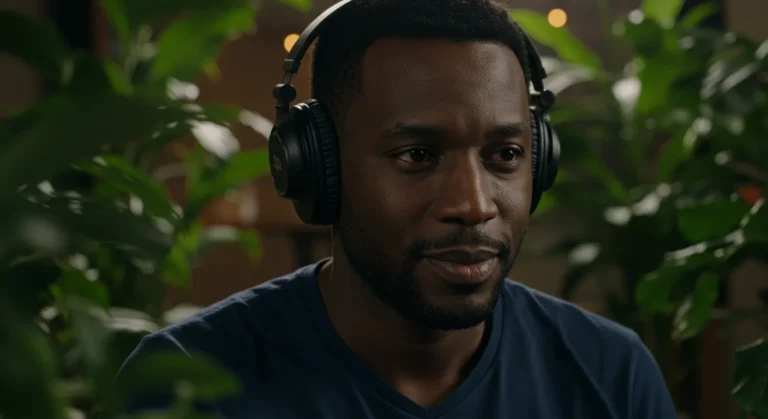Focus Booster: 9 Apps That Actually Help You Get Things Done

Ever sat down to tackle your to-do list, only to find yourself three hours deep in a social media rabbit hole wondering where your day went? You’re not alone. Last week, I watched my colleague Jake struggle through yet another “productive” afternoon that yielded exactly zero completed tasks and a whole lot of frustration.
The solution isn’t more willpower – it’s smarter tools. Enter the world of focus booster apps that use science-backed techniques to train your brain for sustained concentration. These aren’t just fancy timers; they’re your personal productivity coaches disguised as simple smartphone apps.
In this guide, we’ll explore the best focus-enhancing apps that can transform scattered attention into laser-sharp productivity. Ready to reclaim your mental clarity?
Key Takeaways:
- Focus booster apps use proven techniques like Pomodoro and binaural beats
- The best apps combine timing, ambient sounds, and progress tracking
- Consistency beats perfection – even 15 minutes of focused work compounds
- Different apps work better for different personality types and work styles
- Free options can be just as effective as premium alternatives
Why Your Brain Needs a Focus Booster
Our brains weren’t designed for the modern world of constant notifications, endless email chains, and the siren call of social media. Research from UC Irvine shows it takes an average of 23 minutes to fully refocus after an interruption. No wonder we feel scattered!
Focus booster tools work by creating structured environments that support your brain’s natural attention cycles. They’re like training wheels for your concentration – providing external structure until your focus muscles get stronger.
The science is solid: controlled studies show that people using focus apps complete 25-40% more meaningful work compared to those relying on willpower alone.
The Pomodoro Technique: Your Gateway to Better Focus
Before diving into specific apps, let’s talk about the technique that revolutionized productivity: the Pomodoro method. Created by Francesco Cirillo in the 1980s, it’s deceptively simple:
- Work for 25 minutes with complete focus
- Take a 5-minute break
- Repeat 3-4 cycles
- Take a longer 15-30 minute break
Why does this work? Your brain operates in natural attention cycles. Fighting against these rhythms is exhausting; working with them feels effortless.
Best Pomodoro App Options
Forest: Gamification Meets Focus
Forest turns productivity into a game where your focused work grows virtual trees. Stay focused, and your forest flourishes. Get distracted, and your trees wither.
What makes it special:
- Visual progress tracking that’s oddly satisfying
- Real-world impact through tree-planting partnerships
- Social features for accountability
- Detailed analytics showing your focus patterns
I love how Forest makes focus feel less like work and more like nurturing something beautiful. Plus, knowing that your productivity helps plant actual trees adds meaning to those mundane tasks.
Focus Keeper: Clean and Simple
For those who prefer minimalist design, Focus Keeper delivers the best pomodoro app experience without bells and whistles.
Key features:
- Customizable work and break intervals
- Gentle notification sounds (no jarring alarms)
- Today widget for quick session starts
- Detailed statistics tracking
Be Focused: Apple Ecosystem Champion
Mac and iPhone users swear by Be Focused for its seamless integration across devices. Start a session on your phone, continue on your laptop – your progress syncs automatically.
Advanced Focus Timer Applications
Brain.fm: Science-Backed Audio Focus
Here’s where things get interesting. Brain.fm app uses specially designed audio tracks that literally change your brainwave patterns to enhance focus, creativity, or relaxation.
How it works:
- Binaural beats and neural phase locking
- Different playlists for various cognitive states
- 40+ peer-reviewed studies backing the technology
- Personalized recommendations based on your goals
The first time I tried Brain.fm’s “Deep Focus” playlist, I was skeptical. Two hours later, I’d completed a project that had been languishing for weeks. The audio creates a cocoon of concentration that’s hard to describe but impossible to ignore.
Focus: The Ultimate Study Timer App
Designed specifically for students and knowledge workers, Focus combines multiple productivity techniques in one elegant package.
Standout features:
- Multiple timing methods (Pomodoro, Ultradian, custom)
- Ambient sound library with 3D audio
- Goal setting and achievement tracking
- Distraction blocking for websites and apps
Mobile-First Focus Solutions
Stay Focused App: Android’s Hidden Gem
Stay focused app takes a different approach by limiting your access to distracting applications during focus sessions.
What sets it apart:
- App usage tracking and limits
- Scheduled focus sessions
- Motivation through usage statistics
- Customizable restriction levels
Freedom: Cross-Platform Distraction Blocking
While technically not just a timer, Freedom deserves mention for its comprehensive approach to digital wellness.
Core capabilities:
- Block distracting websites and apps across all devices
- Scheduled focus sessions
- Detailed productivity analytics
- Team features for group accountability
Specialized Study Timer Apps
Forest Focus Timer: Academic Excellence
Students need different tools than business professionals. Study timer app options like Forest’s educational version include:
- Subject-specific tracking
- Study group features
- Integration with calendar apps
- Progress sharing with study partners
Toggl Track: Professional Time Management
For those who need to track billable hours alongside focus sessions, Toggl Track bridges productivity and professional requirements.
Choosing Your Perfect Focus Booster
| App Type | Best For | Key Feature | Price Range |
| Forest | Visual learners | Gamification | Free – $3.99 |
| Brain.fm | Audio-sensitive users | Neuroscience-based sounds | $6.99/month |
| Be Focused | Apple ecosystem | Device syncing | Free – $2.99 |
| Freedom | Heavy internet users | Comprehensive blocking | $3-$14/month |
| Focus Keeper | Minimalists | Clean interface | Free – $1.99 |
For the Overwhelmed Beginner
Start with Forest or Focus Keeper. Both offer gentle introductions to structured focus without overwhelming features.
For the Data-Driven Optimizer
Toggl Track or RescueTime provide detailed analytics about where your time actually goes versus where you think it goes.
For the Easily Distracted
Freedom or Stay Focused offer the nuclear option – physically preventing access to your favorite distractions.
For the Audio Learner
Brain.fm or apps with robust ambient sound libraries work best for people who focus better with background audio.
Setting Up Your Focus Routine
Week 1: Establish the Habit
Don’t worry about productivity metrics yet. Focus on consistency:
- Choose one app and stick with it
- Start with just 2-3 pomodoros per day
- Celebrate small wins (seriously, this matters)
- Track completion, not perfection
Week 2-3: Find Your Rhythm
Now you can start optimizing:
- Experiment with different work/break ratios
- Try various ambient sounds or music
- Notice which times of day work best for you
- Begin tracking which types of tasks benefit most
Week 4+: Advanced Optimization
With a solid foundation, you can explore advanced features:
- Set up automated blocking for peak focus times
- Use analytics to identify and eliminate time drains
- Experiment with different focus techniques beyond Pomodoro
- Share progress with accountability partners
Common Pitfalls and How to Avoid Them
App-hopping syndrome: Switching between apps weekly destroys habit formation. Pick one and commit for at least a month.
Perfectionism paralysis: Missing a day or breaking focus doesn’t mean failure. Consistency over perfection wins every time.
Over-engineering: The best focus booster is the one you actually use. Simple often beats sophisticated.
Ignoring breaks: Those 5-minute breaks aren’t optional – they’re when your brain consolidates information and prepares for the next focused sprint.
Real-World Success Stories
Maria, a freelance graphic designer, was struggling to meet client deadlines. After implementing a pomodoro app routine with Forest, she increased her billable hours by 35% while feeling less stressed.
David, a graduate student, couldn’t focus on research for more than 10 minutes. Using Brain.fm during study sessions, he extended his attention span to 90-minute blocks and finished his thesis two months early.
These aren’t exceptional cases – they’re typical results when you give your brain the structure it craves.
The Psychology Behind Focus Apps
Why do these simple tools work so well? It comes down to three psychological principles:
External scaffolding: Your app provides structure your brain doesn’t have to create, freeing mental energy for actual work.
Commitment devices: Starting a timer creates a psychological commitment that’s harder to break than a vague intention to “be productive.”
Progress visualization: Seeing completed pomodoros or grown trees provides immediate feedback that motivates continued effort.
Advanced Techniques for Power Users
Batching Similar Tasks
Use your focus timer to batch similar activities. Answer all emails in one focused session, then switch to creative work in the next.
Energy-Based Scheduling
Match your most challenging tasks to your highest energy periods. Use app analytics to identify when you’re naturally most focused.
Environmental Optimization
Combine your focus app with environmental changes: specific lighting, temperature, or even scents that signal “focus time” to your brain.
Building Long-Term Focus Fitness
Think of focus apps as training wheels, not permanent solutions. The goal is developing sustained attention that doesn’t require external tools.
Progressive challenges: Gradually increase session lengths or reduce break frequencies as your focus stamina improves.
Mindful transitions: Use the transition between focused work and breaks to practice mindfulness, strengthening your overall attention muscle.
Regular app detoxes: Periodically try focusing without any apps to test your natural attention abilities.
The Future of Focus Technology
We’re seeing exciting developments in focus-enhancing technology:
- AI-powered personalization that adapts to your unique attention patterns
- Biometric integration using heart rate variability to optimize break timing
- VR focus environments that eliminate visual distractions entirely
- Brain-computer interfaces that provide real-time feedback on attention levels
The best part? You don’t need to wait for the future. The tools available today can dramatically improve your productivity and mental clarity.
Your smartphone – usually the enemy of focus – can become your greatest ally in the battle for sustained attention. Whether you choose a simple pomodoro app or an advanced brain.fm subscription, the key is consistent daily practice.
Start small, stay consistent, and watch as your ability to focus becomes your secret weapon in a distracted world.
Ready to transform your productivity? Check out our guides on creating the perfect focus environment and science-backed techniques for deeper concentration to maximize your focus app results.
Disclaimer: The information provided is for educational purposes only, not a substitute for professional medical advice. Always consult a healthcare professional.







